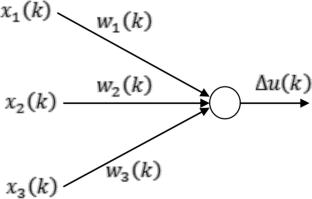基于单神经元的连续搅拌罐反应器温度控制技术
IF 1.3
4区 工程技术
Q4 INSTRUMENTS & INSTRUMENTATION
引用次数: 0
摘要
本文提出了一种确定 PID 控制器最佳值的新技术。所提方案基于单神经元控制器,其权重代表 PID 参数。权重的调整是通过一种名为 DragonFly 算法的最新元启发式算法完成的。为了证明我们的方法的有效性,我们将其用于控制连续搅拌罐反应器。获得的结果与几种算法进行了比较:Ziegler-Nichols 算法、遗传算法和粒子群优化算法。本文章由计算机程序翻译,如有差异,请以英文原文为准。


A Single-Neuron-Based Temperature Control of a Continuous Stirred Tank Reactor
In this paper, a new technique to determine the best values of a PID controller is presented. The proposed scheme is based on using a single-neuron controller which its weights represent the PID parameters. Weight’s adjustment is accomplished with a recent meta-heuristic algorithm called the DragonFly Algorithm. To show the effectiveness of our method, we have applied it to control a Continuous Stirred Tank Reactor. The obtained results are compared with several algorithms: the Ziegler–Nichols, Genetic Algorithm, and Particle Swarm Optimization.
求助全文
通过发布文献求助,成功后即可免费获取论文全文。
去求助
来源期刊

MAPAN
工程技术-物理:应用
CiteScore
2.30
自引率
20.00%
发文量
91
审稿时长
3 months
期刊介绍:
MAPAN-Journal Metrology Society of India is a quarterly publication. It is exclusively devoted to Metrology (Scientific, Industrial or Legal). It has been fulfilling an important need of Metrologists and particularly of quality practitioners by publishing exclusive articles on scientific, industrial and legal metrology.
The journal publishes research communication or technical articles of current interest in measurement science; original work, tutorial or survey papers in any metrology related area; reviews and analytical studies in metrology; case studies on reliability, uncertainty in measurements; and reports and results of intercomparison and proficiency testing.
 求助内容:
求助内容: 应助结果提醒方式:
应助结果提醒方式:


